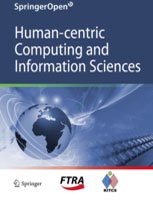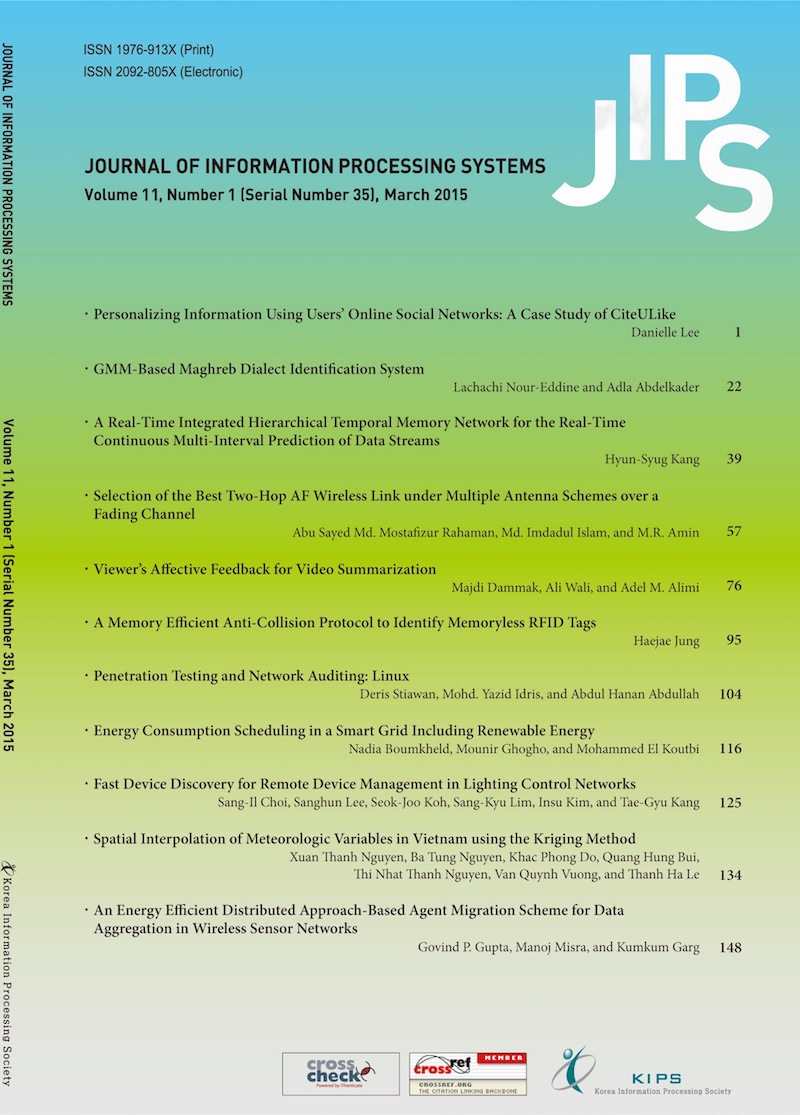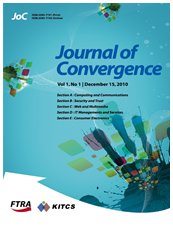|
Home
| Profiles |
Publications |
Professional
Activities
|
Gallery
| E-Mail
| Korea / English |
|
Human-centric Computing and Information Sciences stands for the continuously evolving and converging information technologies, including:
Journal of Information Processing Systems (JIPS) is the official international journal of the Korea Information Processing Society. As information processing systems are progressing at a rapid pace, the Korea Information Processing Society is committed to providing researchers and other professionals with the academic information and resources they need to keep abreast with ongoing developments. The JIPS aims to be a premier source that enables researchers and professionals all over the world to promote, share, and discuss all major research issues and developments in the field of information processing systems and other related fields.
Journal of Convergence covers the breadth of research in convergence technology and its applications. Recently, advances in computing and communication technologies are creating exciting new paradigms and are emerging as disciplines to provide intelligent computing and communication services all the time, everywhere, such as ubiquitous/pervasive computing and communication, smart/Intelligent computing and communication, green computing and communication, and so on. This section covers all aspects of computing and communications. Topics of interest include, but are not limited to: (but are not limited to):
|



